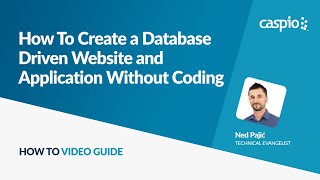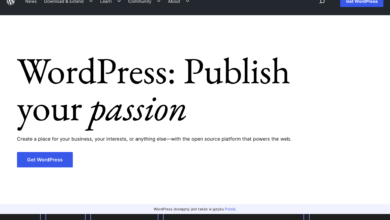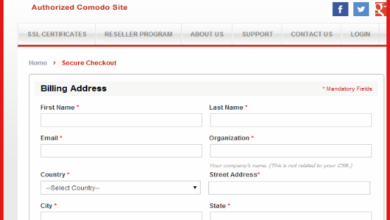University of Washington Human Resources

How Consumer Directed Health Plans Work
If for good health or luck you don’t need to visit the doctor often, choosing a consumer directed health plan (CDHP) can save you money and they provide flexibility in how you spend and save for your health care.
While CDHPs provide coverage similar to traditional plans, they have specific eligibility requirements and other features that make them unique. Before you enroll in a CDHP plan, learn how it works and if it’s right for you and your family.
Reading: What does cdhp mean in health insurance
Eligibility and Enrollment
Due to the unique tax advantages of savings accounts for (HSA), which are governed by the Internal Revenue Service (IRS), certain circumstances prevent you from enrolling in a CDHP. You cannot enroll in a CDHP if:
- You or your spouse are enrolled in a flexible spending arrangement (FSA), even if you are not covering your spouse in your health plan
- You are claimed as a dependent on someone else’s tax return
- You are enrolled in Medicaid, Medicare (Part A or B), or TRICARE
- You are enrolled in another Comprehensive Medical Plan
- You or your spouse are enrolled in a Voluntary Employee Beneficiary Association (VEBA) account
If none of these apply to you, then you can use the step-by-step instructions to enroll in benefits on the Integrated Services Center website. Contact the One-Stop Service Center if you have any questions.
Is a CDHP right for me?
Compared to other PEBB plans, CDHPs cover the same basic health care services medical and have a similar benefit structure. . Like other plans, you pay coinsurance for services, your care costs less when you use network providers, and you get coverage for common services like vision and prescriptions.
CDHPs differ from others plans in two important ways: the HSA and the high deductible balance and low premium cost.
Although CDHPs have the lowest premium cost, when you select a CDHP, you take on more financial risk : a much higher deductible and out-of-pocket limit. If you get sick or injured and need major medical care, you’ll pay much more out-of-pocket than with a traditional plan.
The ability to pay higher out-of-pocket costs may not be enough. be a problem if you have money saved, either in the HSA or elsewhere, to cover those costs.
See also: How To Start an Online Store in 2023 (Step-by-Step Guide)
If you have money saved, a CDHP may be right for you. Also, CDHPs work well for people who:
- Can meet the eligibility requirements
- Want the lowest monthly premium
- Are generally healthy and have no significant ongoing medical costs or needs
- Willing to verify which services, supplies, and drugs qualify under the HSA
- Can track HSA spending in case of an IRS audit
- Want to save on taxes by putting their own money into an HSA
If you are interested in enrolling in a CDHP but first want to compare CDHPs with For other plans, visit the individual plan pages. Kaiser WA, UMP and Kaiser Permanente NW offer CDHP plans.
How HSAs Work
When you enroll in a CDHP, you’re also automatically enrolled in an HSA. Along with lower premiums, this is the main advantage of choosing a CDHP.
An HSA works like a typical bank account, but to take full advantage of this benefit, the money should only be used for medical expenses. While the IRS specifies exactly which expenses qualify, you’re in charge of how and when you spend your HSA money. You even get an HSA debit card that works like a typical debit card.
The money in the HSA is not only yours, but the state deposits money directly into your HSA account at the end of each month:
Notice for employee-only coverage that, over the course of a year, the state deposits $700, which is half of the CDHP’s $1,400 deductible. Any money you save in an HSA earns interest, just like a bank account.
And, just like it would in a bank account, the money in your HSA stays there from one year to the next. This may come as a surprise to those used to flexible spending arrangements (FSAs) where you lose unspent account funds at the end of the year.
While an HSA works Much like a traditional bank account, unlike a typical account, the money you put into your HSA is on a pre-tax basis. This is a significant benefit to you, as it reduces your federal tax liability.
See also: How to start a book blog
The only drawback, so to speak, to having an HSA is that you are fully responsible for the tax consequences, including the use from the HSA. funds only for qualified expenses and not to exceed annual contribution limits.
HSAs for PEBB plans are administered by HealthEquity, a health savings company. Learn more about how HSAs work, including what qualifies as a medical expense, by visiting the HealthEquity website.
Depositing money into your HSA
If you want to deposit money into your HSA, you have two options: make a contribution through HealthEquity or set up a UW payroll deduction.
p>
To deposit through HealthEquity, sign in to your HSA account to make a contribution to your account. If you have any questions, please contact HealthEquity directly.
You can change your payroll deduction as often as you like during the year. If you want, you can fully fund your HSA at the beginning of the year, as long as you remain covered by a qualified CDHP for the entire year.
Annual contribution limits for HSAs
You have full responsibility for making sure your HSA contributions don’t exceed the IRS limit. This includes contributions from you, your spouse, the state, and any other contributors. The maximum amount that a contributing household can contribute each year to an HSA is shown in the table. For complete tax details, visit the IRS health savings account page.
Keep your HSA after you leave the CDHP
You own your HSA and You won’t lose any unspent funds when you change your health plan, change jobs, or retire. You can spend the funds in your HSA on future qualified medical expenses.
When you leave the CDHP, the state stops funding your HSA. If you have a UW payroll deduction that goes into your HSA, stop the deduction in Workday by following the instructions for changing HSA contributions. Contact the One-Stop Service Center if you have any questions.
In addition, HealthEquity will charge you a monthly fee of $3.95 if you have less than $2,500 in your account after leaving CDHP. You can avoid this fee by making sure you have at least $2,500 in your HSA or by spending all the funds in your HSA.
See also: How to add a signature in Yahoo Mail and include a digital signature with your messages
.




